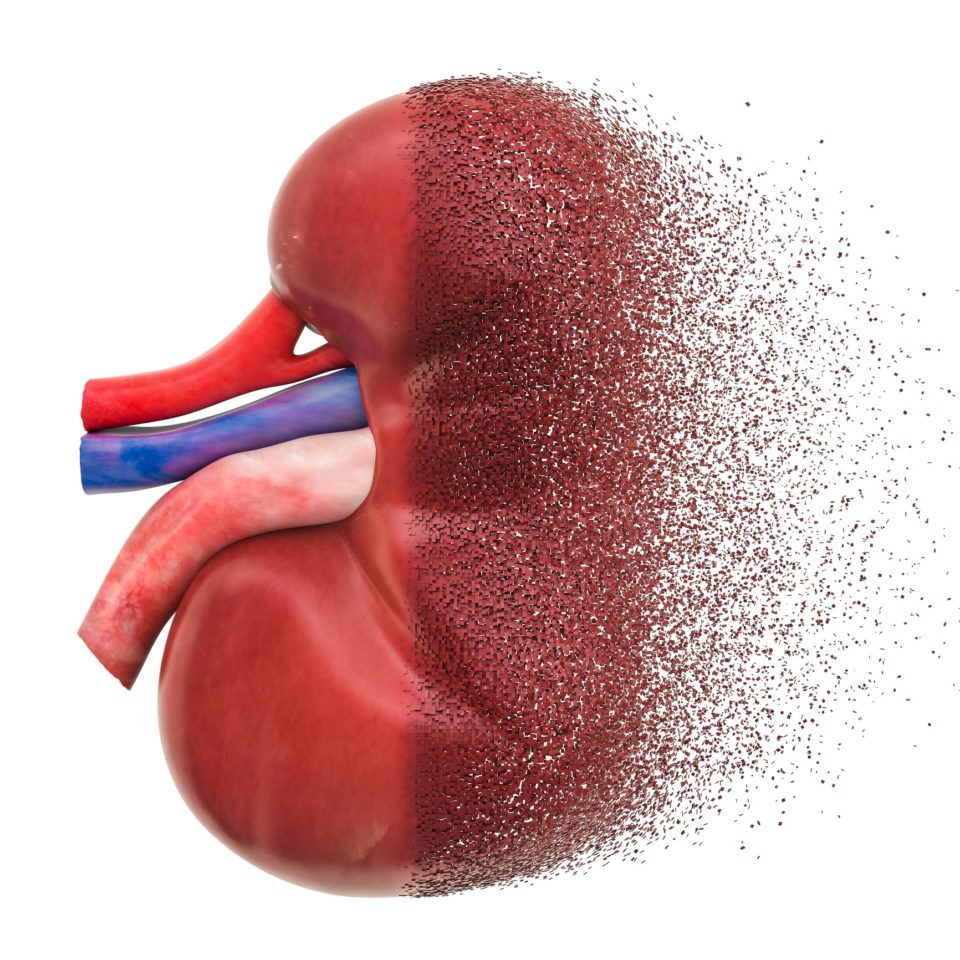
In the United States, the burden of chronic kidney disease (CKD) and end-stage kidney disease (ESKD) disproportionally falls on individuals of Black race. Black US veterans with CKD experience substantial adverse consequences; compared with White veterans, Black veterans with CKD are twice as likely to progress to ESKD and account for approximately 37% of all patients with ESKD in the US Department of Veterans Affairs (VA) health care system, while representing only 12% of the veteran population.
Several factors are associated with the racial disparities seen among Black individuals with CKD, including limited access to high-quality health care, lower socioeconomic status (SES), exposure to environmental toxins, and health beliefs and behaviors. Only part of the disparities in health is associated with nonbiological factors.
According to Kevin A. Jenkins, PhD, and colleagues, racism is likely one of the factors associated with the disparities in health conditions and health care. The researchers recently conducted a qualitative study to examine the consequences of racism and the resulting social structures that establish and perpetuate racial disparities. Results of the study were reported online in JAMA Network Open [doi:10.1001/jamanetworkopen.2022.11900].
The study utilized semi-structured interview guides to examine the health care experiences of 36 Black veterans with CKD who received care at the Corporal Michael Crescenz VA Medical Center in Philadelphia, Pennsylvania. The interviews were conducted from October 2018 to September 2019. Applied thematic analysis was used to analyze the interview transcripts.
All participants had a diagnosis of CKD and were (1) not dependent on dialysis (stage 3 [moderate; glomerular filtration rate (GFR), 30-59 mL/min/1.73 m2] or stage 4 [severe; GFR, 15-29 mL/min/1.73 m2] kidney disease); (2) dependent on dialysis (stage 5, ESKD; GFR <15 mL/min/1.73 m2 kidney disease); or (3) post-transplant (stage 5 kidney disease). The study interviews were conducted before or after appointments or during dialysis.
The study was framed by an a priori conceptual framework using The House that Racism Built by Williams et al that established three evidence-based pathways of racism directly associated with health and health care.: cultural racism; institutional racism; and individual discrimination. According to the authors, individual discrimination can have “consequences for health through psychological, biological, and behavioral factors; health care use; and individual and collective factors.”
Mean age of the 36 participants was 66.0 years and 97.2% (n=35) were male. Nineteen participants were married. Mean duration of military service was 8.0 years. Of the 36 participants, 41.7% (n=15) were not dependent on dialysis and 27.8% reported having a immediate family member (parent or sibling) with CKD. The most common comorbidity was hypertension (25.0% [n=9]).
The researchers identified four themes across all responses: (1) association of racism with emotional and physical stress; (2) distrust in the health care system and hypervigilance; (3) bottling up of feelings and maladaptive behavior; and (4) positive coping strategies.
The participants reported a sense of hopelessness related to psychological reactions to racism, as well as feelings of deep anger and resentment derived from a sense of hurt and betrayal. Most of the participants believed racism had an impact on their physical health, manifesting as headaches and high blood pressure.
Addressing distrust in the health care system, participants said they felt they always had to prove themselves to medical staff and clinicians. They described feeling dismissed in the dialysis clinic, creating a need to carefully navigate those settings and act as their own advocate. In some cases, participants reported leaving the VA health care system or skipping appointments to avoid experiencing racism.
Participants said their immediate behavioral reactions to racism often began with ignoring the racist event. They said that downplaying the initial encounter with discrimination and the subsequent stress helped to numb their ability to internalize the experience. Another maladaptive behavior was the need to be hypervigilant to perceived social compliance, including the need to be perfect.
When asked about positive coping strategies, participants described a variety of strategies for managing the stress associated with racism. Positive coping strategies included community involvement, mentoring young adults, and wanting to influence and help the next generation. Another coping mechanism mentioned by the participants was faith, in the form of family prayer or church attendance. Family was also a fundamental source of support; spending time with grandchildren was described as a source of joy. Talking and sharing stressful events with family was also a major source of support.
The researchers cited some limitations to the study findings, including the high percentage of male participants, limiting the participants to individuals who use the VA for their health care, collecting data at a single center only, and the assumption in the questions that participants experienced racism and that racism is associated with health.
In conclusion, the authors said, “In this qualitative study, Black veterans with CKD described health care experiences that were retraumatizing and further worsened their psychological and physical responses to racism, potentially exacerbating CKD symptoms. Implementing care models that acknowledge racism as traumatic experience is one way the VA and other health care institutions can lead the nation in developing antiracist health care.”
Takeaway Points
- Researchers conducted a study to examine health care experiences of Black US veterans with chronic kidney disease (CKD) to identify and examine racial discrimination encountered by that patient population.
- In the single-center study, 36 Black veterans with CKD described feeling angry and resentful and dealing with stress as a result of encounters with racism; some said they did not trust the health care system.
- The findings provided an opportunity to train health care professionals to implement a trauma-informed approach to care to address stress and trauma based on racism.







 © 2025 Mashup Media, LLC, a Formedics Property. All Rights Reserved.
© 2025 Mashup Media, LLC, a Formedics Property. All Rights Reserved.